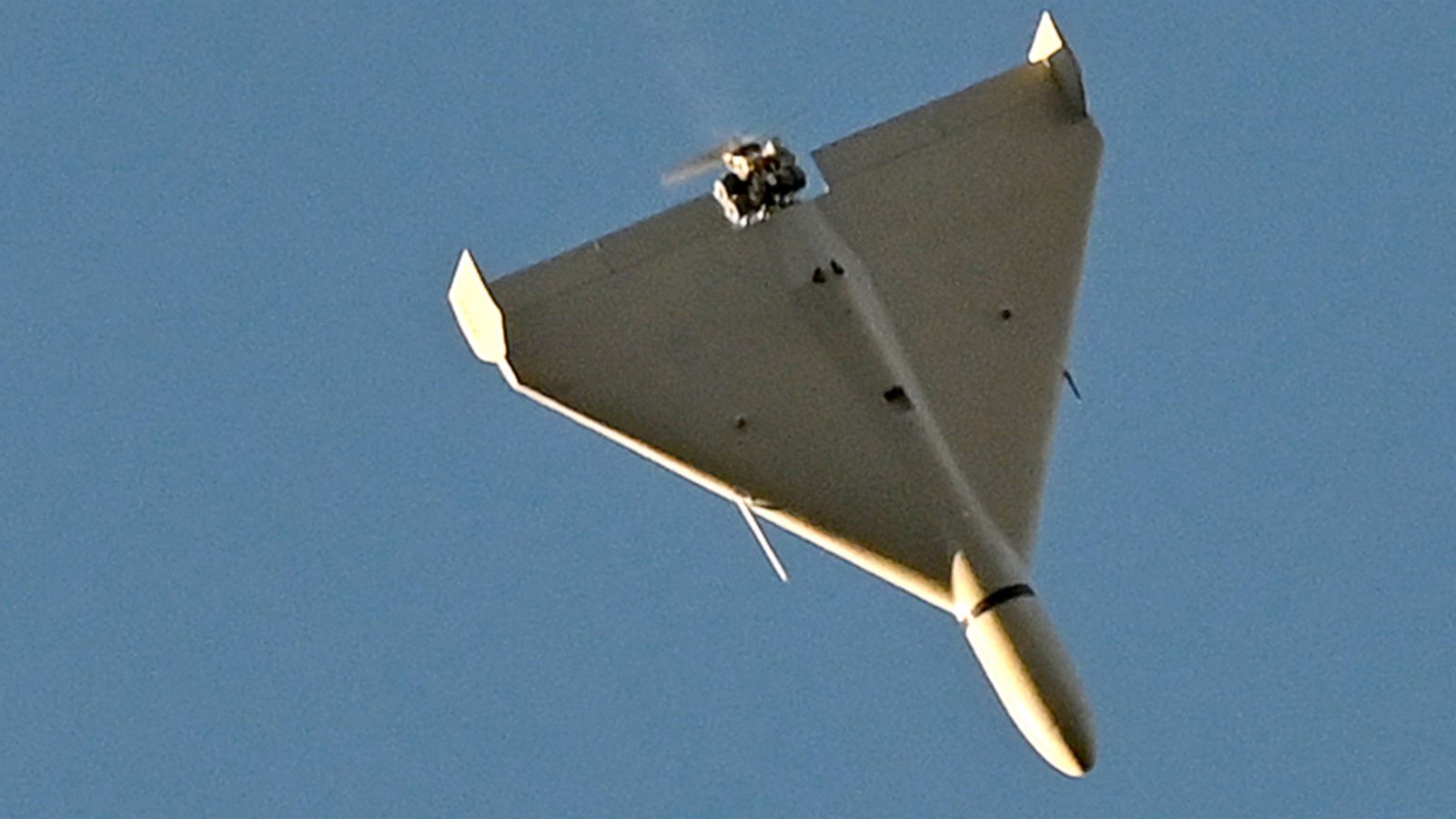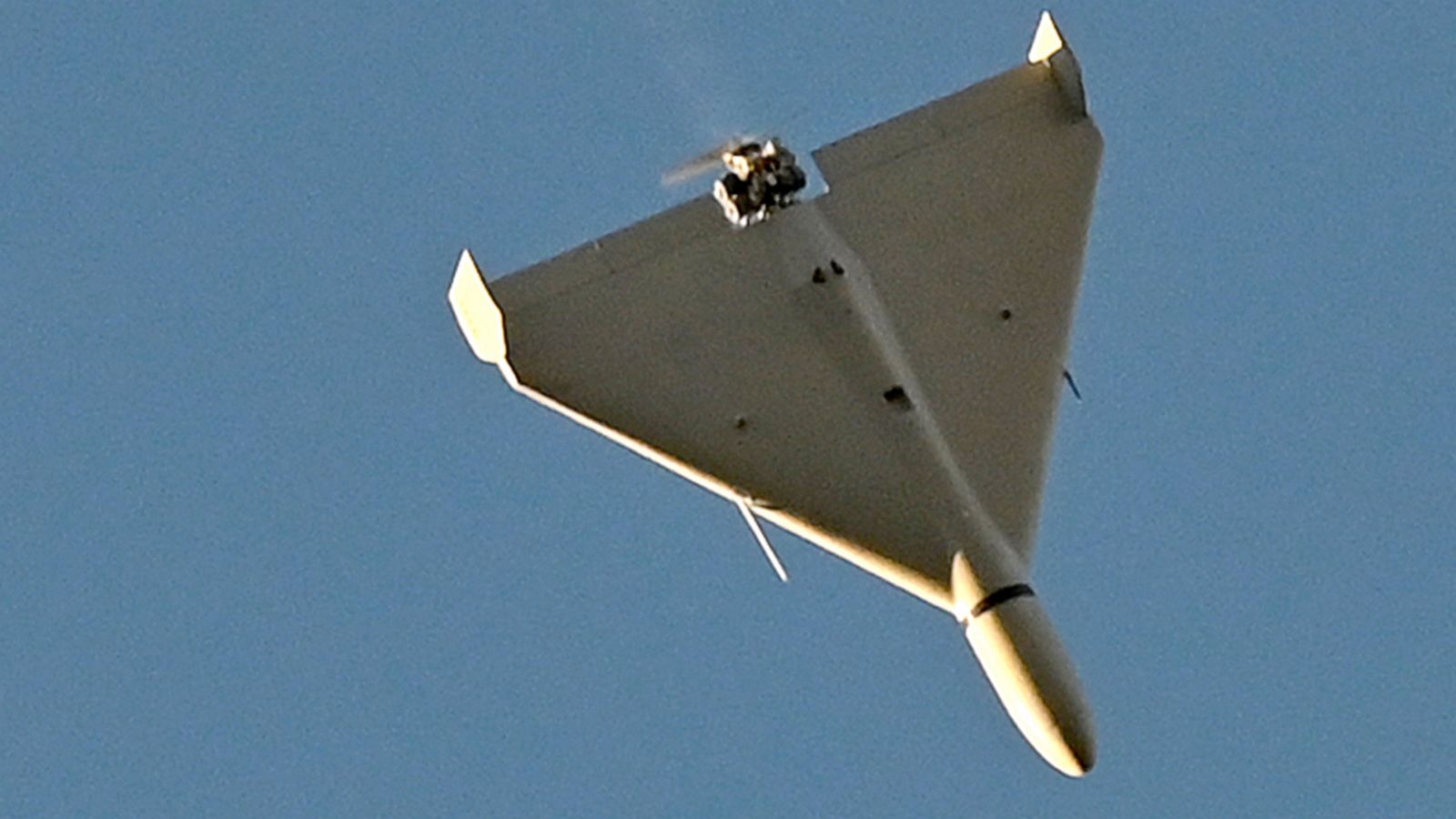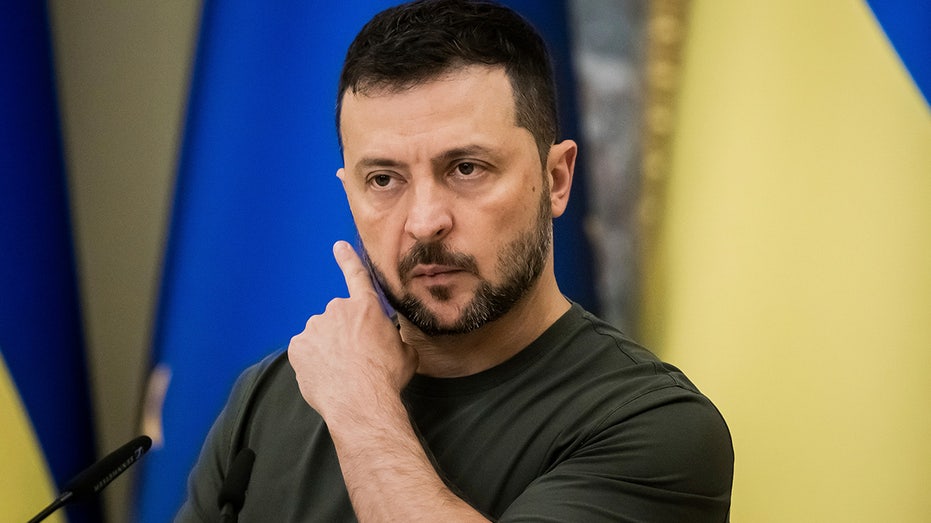
Russia Launches Massive Attack on Ukraine’s Energy Infrastructure
In a dramatic escalation of hostilities, Russian forces unleashed a substantial attack on Ukraine’s energy and power infrastructure on Sunday, employing an extensive arsenal of hundreds of drones and missiles. Ukrainian President Volodymyr Zelenskyy confirmed that the assault involved a staggering number of at least 120 missiles and 90 drones, a significant portion of which were Iranian-made Shahed drones. This offensive has been described by Ukrainian officials as the most significant long-range assault by Russia in the past three months.
Targeting Critical Infrastructure
President Zelenskyy condemned the attack, stating, “The enemy’s target was our energy infrastructure across Ukraine. Unfortunately, there has been damage to several facilities due to both direct hits and falling debris.” Tragically, the severity of the drone strikes was underscored by a tragic incident in Mykolaiv, where a drone strike resulted in the deaths of two individuals and injuries to six others, including two children.
Despite the ferocity of the assault, Ukrainian air defense forces demonstrated remarkable efficiency, managing to intercept and shoot down 144 projectiles before they could reach their intended targets. This defensive capability highlights the ongoing battle for air superiority amidst Russian aggression.
Widespread Destruction Across Ukraine
Explosions reverberated across multiple cities in Ukraine, including Kyiv, Odesa, Zaporizhzhia, Kryvyi Rih, and Dnipro. The strategic port city of Odesa was particularly hard hit, suffering a complete loss of power, a stark reminder of the vulnerability of Ukraine’s critical infrastructure amidst ongoing military operations. In a show of solidarity and readiness, Poland scrambled its air force in response to the assault, though fortunately, no incidents of Russian ordnance landing on Polish territory were reported.
A Pattern of Targeted Attacks
This latest barrage reflects a broader strategy employed by Russia during the conflict, particularly escalating attacks on Ukraine’s energy network as the colder months approach. Over the years, Moscow has frequently aimed its military efforts at crippling Ukraine’s energy capability, with the intent to disrupt daily life and undermine the Ukrainian government’s ability to function.
Shifts in Diplomatic Landscape
The assault comes amid political developments in the United States as President-elect Donald Trump prepares to appoint a special envoy focused on leading negotiations aimed at ending the bitter conflict between Ukraine and Russia. This envoy role is expected to be an unpaid position, reminiscent of Kurt Volker’s previous tenure from 2017 to 2019, where he acted in a similar capacity on a volunteer basis.
Trump is reportedly moving swiftly to announce key appointments within his forthcoming administration, buoyed by optimism that he may forge a path to peace between Ukrainian President Zelenskyy and Russian President Vladimir Putin. However, detailed plans regarding the potential framework for negotiations remain scarce.
Controversial Proposals on the Table
Some sources indicate that Trump’s advisers have floated a controversial proposal which would compel Kyiv to accept a demilitarized zone along the existing front lines, effectively permitting Russia to maintain control over the territories it has seized, which currently encompass approximately 20% of Ukrainian land. Such a concession raises serious concerns among critics who argue it would further entrench Russian influence in the region.
Furthermore, there have been discussions about encouraging Ukraine to postpone any ambitions for NATO membership for the next 20 years. Critics argue that this proposal would not only impede Ukraine’s sovereignty but also serve to strengthen Moscow’s position, effectively relegating Ukraine to a buffer state between Russia and the West.
As the situation continues to evolve, the international community closely monitors developments in Eastern Europe, where the stakes have escalated dramatically amid ongoing military confrontations and shifting diplomatic efforts.
Fox News’ Morgan Phillips and the Associated Press contributed to this report.


















